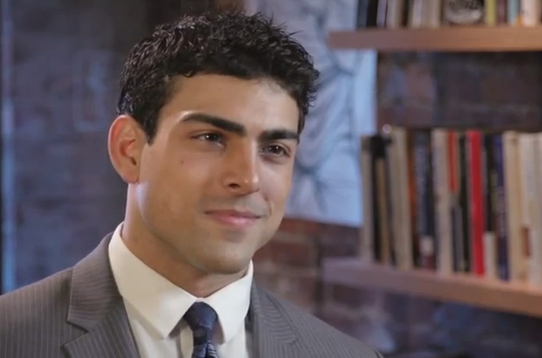
A scant two months in, 2013 has already been a sobering year for the copyright reform movement. The suicide of one of our leaders, Aaron Swartz, shocked and outraged us. It brought old icons back into the fray and incited a growing legal and political thrust to action that is playing out as we speak.

One of the key players is Derek Khanna, the tip of the spear in a new copyright reform advocacy group called Fix Copyright. Khanna is the GOP “rising star” who was fired for a controversial copyright memo that I wrote about back in November of last year.
For the crime of pointing out a new way forward through Republican opposition to the casual granting of market monopolies (makes a lot of ideological sense), Khanna was unceremoniously fired from his post at the Republican Study committee. We’re pretty sure he’s not sweating that situation anymore, seeing as he just authored a White House petition signed by 114,000 U.S. citizens — the first to qualify for the new rules of consideration (the threshold is 100,000 votes).
The proposition? Mobile phone users should be free to unlock their cell phones. Simple enough, right? But a recent decision by the Library of Congress — perhaps under lobbying pressure — made the practice essentially illegal.
Once the petition reached critical mass, the Obama administration agreed with Khanna and the 114,000+ citizens who cried out against the possibility they could go to jail for unlocking their cell phone.
The exciting thing is that this is just the beginning. Khanna has already pledged to take the fight further.
Khanna is a unique figure in the endeavor to transform intellectual property policy into a force for the greater good. His up-and-coming political stature is a rare commodity within the oft-geeky, insular culture of copyright reform. This is an exciting time for those optimistic for a rethinking of copyright that values cultural and social welfare concerns over a strictly labor- and personality-based view of intellectual property’s purpose.
